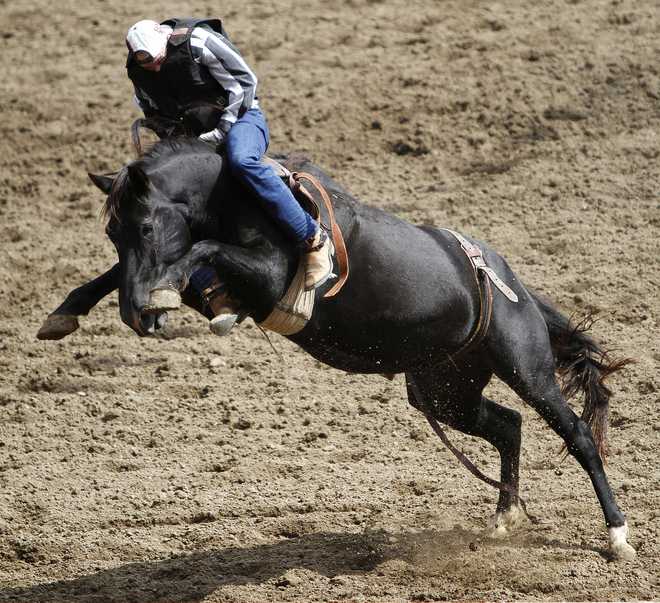Every year, the prisoners at Louisiana State Penitentiary, better known as Angola, gather around to fight bulls and sell handmade crafts and food. Originally started as a morale booster for inmates at the prison, the Angola Rodeo has become a tradition with roots reaching back to 1965. It is the longest running prison rodeo in the country.
The Angola Rodeo is a huge hit among the general public and inmates alike, year after year. However, this seemingly fun and harmless event has some moral and ethical issues. Inmates sometimes get hurt in the ring with bulls charging at them full speed. How many inmates are out there because they think it will be fun? How many have simply lost the will to live and don’t mind putting themselves in danger for the entertainment of the general public and prison guards? While there is onsite medical help available in the event of an emergency, the ethical implications still linger.
Where is the line drawn between harmless fun and exploitation?
One of the rodeo events, known as “Convict Poker,” is particularly dangerous. Four inmates sit at a table playing poker in the middle of the arena. Then a wild bull is released into the arena with them. Whoever is the last man left in the chair wins the event.
Reminiscent of the Roman gladiators (read: glorified slaves), these events are barbaric at best. As a way of punishment, many Roman slaves were held in a “work-house,” which is similar to our modern state penitentiary system. Slaves also fought in the arena as gladiators hoping to be freed from servitude. Here in Louisiana, as well as many other states, inmates are used as free labor. The Angola Rodeo just adds to the laundry list of parallels between gladiators and inmates in the state penitentiary system.
In the times of Roman slavery, some people were sentenced to slavery as punishment for committing a crime — much like criminals in Louisiana, who are convicted and consequently housed in facilities and used as free labor throughout the area. Louisiana has the highest number of incarcerations per capita in the nation with more than 40,000 inmates. In Louisiana, about half of previous offenders will find themselves back in prison within five years of leaving.
While the ethical issues this event brings about are unsettling, there are a few redeeming qualities about the Angola Rodeo. This event provides incentive for good behavior among the inmates and gives them something to look forward to. Additionally, money raised from the Angola Rodeo has been used to create an interfaith chapel on the prison premises. Future funds will be donated to the inmate welfare fund and used to supplement the development of prison facilities.
The prison inmates choose to participate in the rodeo and no one forces them to do so. But it is still important to understand the uncanny parallels that exist between the rodeo and the antiquated Roman gladiators. Personally, I find the whole thing quite barbaric, but I can understand how this can be an exciting experience for some inmates who want a break from the monotony of everyday prison life.
Shamiyah Kelley is a 20-year-old communication studies senior from Irmo, S.C.
Angola Rodeo blurs line between fun, exploitation
October 21, 2013





